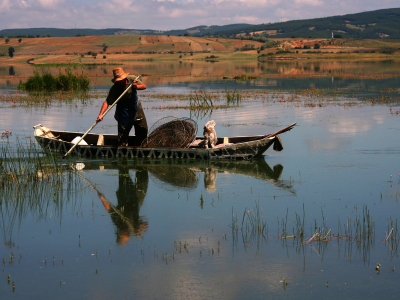
Europe and Central Asia Regional Overview of Food Security and Nutrition 2024
Managing water sustainably for improved food security and nutrition
This report provides the latest updates on hunger, food insecurity and malnutrition in Europe and Central Asia, including the cost and affordability of healthy diets. It also explores the central theme of water security, highlighting its critical connections to agriculture, food security and nutrition. While the region has made progress in reducing hunger and food insecurity (SDG Target 2.1), challenges remain in eliminating all forms of malnutrition (SDG Target 2.2).
Collections
- Country gender assessment series
- Digital agriculture
- Disaster risk reduction and management publication series
- Empowering smallholders and family farms series
- Transboundary animal diseases - Leaflets
Multimedia resources
Publications
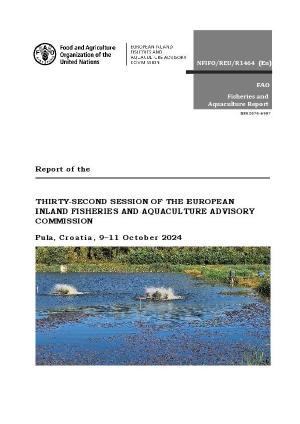
Report of the Thirty-second Session of the European Inland Fisheries and Aquaculture Advisory Commission
12/2024
The Thirty-second Session of the European Inland Fisheries and Aquaculture Advisory Commission (EIFAAC) was held in Pula, Croatia, from 9 to 11 October 2024. The session discussed the results achieved since 2022 and adopted two new resolutions: On inland fisheries statistics and information for management, and on creating an enabling environment for freshwater aquaculture development.
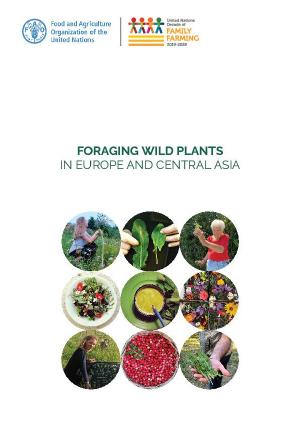
Foraging wild plants in Europe and Central Asia
10/2024
This publication delves into the practice of foraging, highlighting its historical roots, resurgence, and modern-day relevance. It emphasizes the nutritional and environmental benefits of foraged plants, which enrich diets, support biodiversity, and align with sustainable agrifood systems like agroecology and permaculture. Modern interest in foraging is driven by concerns over dietary health and sustainability.
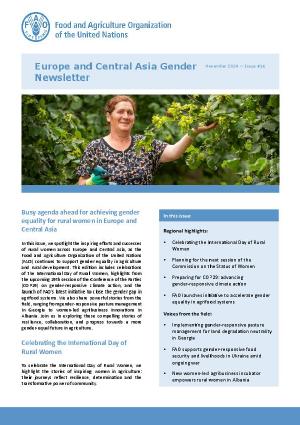
Europe and Central Asia Gender Newsletter, November 2024 – Issue #16
12/2024
In this issue, we feature FAO’s latest initiatives aimed at promoting gender equality in rural advisory services, agriculture and rural development in Europe and Central Asia. This edition includes celebrations of the International Day of Rural Women, highlights from the upcoming 29th session of the Conference of the Parties (COP29) on gender-responsive climate action, and the launch of FAO’s latest initiative to close the gender gap in agrifood systems.
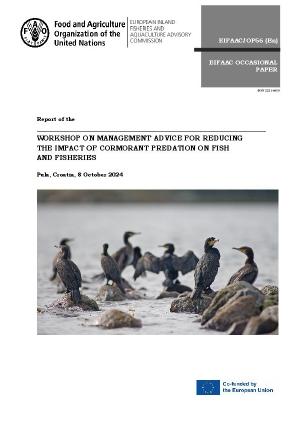
Report of the workshop on management advice for reducing the impact of cormorant predation on fish and fisheries
12/2024
The European Inland Fisheries Advisory Commission (EIFAAC) workshop on management advice for reducing the impact of cormorant predation on fish and fisheries was held in Pula, on 8 October 2024. The workshop reported on the use of EU Birds Directive Article 9 derogations, regulations and management measures to reduce the impact of cormorants on fish populations, fisheries and aquaculture, discussed the outcomes of recent EIFAAC surveys, and some potential regional cormorant management measures.
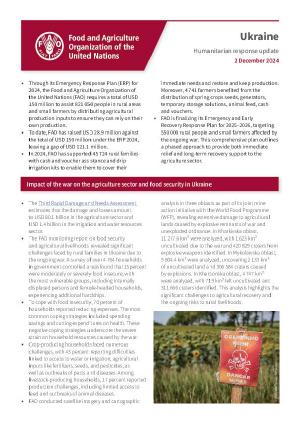
Ukraine: Humanitarian response update
12/2024
Through its Emergency Response Plan (ERP) for 2024, the Food and Agriculture Organization of the United Nations (FAO) requires a total of USD 150 million to assist 821 050 people in rural areas and small farmers by distributing agricultural production inputs to ensure they can rely on their own production.
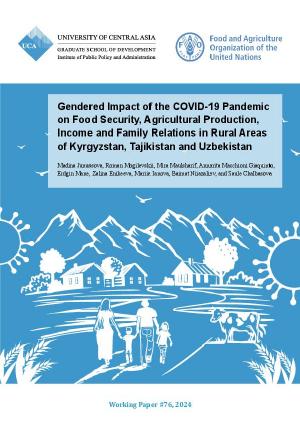
Gendered impact of the COVID-19 pandemic on food security, agricultural production, income and family relations in rural areas of Kyrgyzstan, Tajikistan and Uzbekistan
05/2024
This paper explores changes in agriculture, food security, nutrition, and family dynamics in the rural areas of Central Asia – specifically, Uzbekistan, Tajikistan, and Kyrgyzstan – during the pandemic, focusing on women and men. Employing a mixed-methods approach that combines quantitative and qualitative analyses, the findings reveal that rural women were disproportionally affected due to pre-existing gender disparities and limited decision-making power.
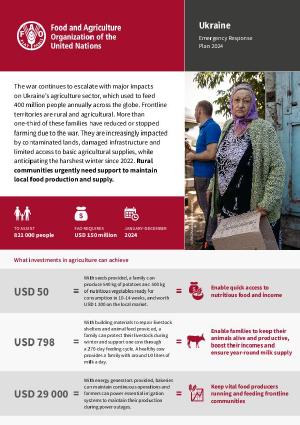
Ukraine: Emergency Response Plan 2024
07/2024
The war in Ukraine continues to escalate with major impacts on Ukraine’s agriculture sector, which used to feed 400 million people annually across the globe. Frontline territories are rural and agricultural. This document provides a summary of the planned response and funding requirements of the Food and Agriculture Organization of the United Nations within the framework of the 2024 Emergency Response Plan for Ukraine.
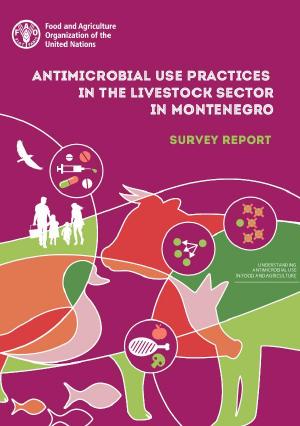
Antimicrobial use practices in the livestock sector in Montenegro
06/2024
The Understanding Antimicrobial Use in Food and Agriculture series is a compilation of country reports, each describing antimicrobial use (AMU) practices and awareness of antimicrobial resistance (AMR) in the livestock sector. The data presented in these reports was obtained through knowledge-attitude-practices (KAP) field surveys conducted with farmers of priority livestock production systems, field veterinarians, veterinary pharmacies, and feed mills.
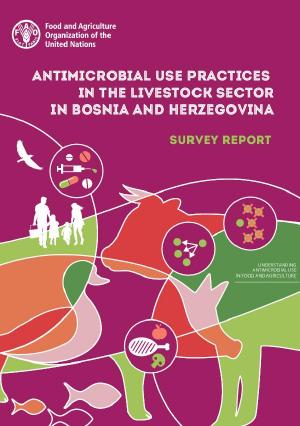
Antimicrobial use practices in the livestock sector in Bosnia and Herzegovina
07/2024
The Understanding Antimicrobial Use in Food and Agriculture series is a compilation of country reports, each describing antimicrobial use (AMU) practices and awareness of antimicrobial resistance (AMR) in the livestock sector. The data presented in these reports was obtained through knowledge-attitude-practices (KAP) field surveys conducted with farmers of priority livestock production systems, field veterinarians, veterinary pharmacies, and feed mills.
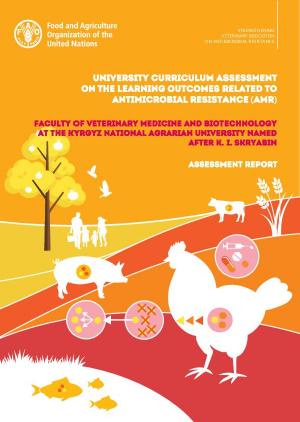
University curriculum assessment on the learning outcomes related to antimicrobial resistance: Faculty of Veterinary Medicine and Biotechnology at the Kyrgyz National Agrarian University named after K.I. Skryabin
06/2024
The Strengthening Veterinary Education on Antimicrobial Resistance series compiles assessment reports of veterinary education institutions, detailing strengths and areas for improvement in the institutions’ curricula, and recommendations to enhance their education on antimicrobial resistance (AMR) learning outcomes. Data was gathered through assessments performed using the Ohio State University's "Evaluation Tool to Assess AMR Learning Outcomes".
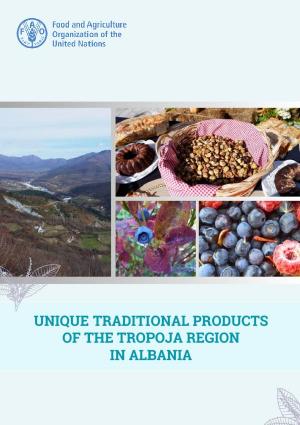
Unique traditional products of the Tropoja region in Albania
07/2024
The booklet introduces the unique traditional products of the Tropoja region in Albania. The purpose of this document is to recognize and promote the traditional products of the Tropoja region (Albania), revealing the potential to be certified as unique traditional products closely related to their geographical origin. This is an information product aimed at the general public.
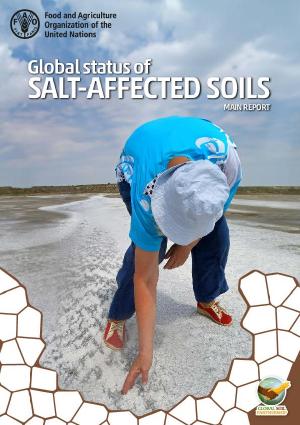
Global status of salt-affected soils
11/2024
Salt-affected soils, characterized by high soluble salts (saline) or exchangeable sodium (sodic), impact plant growth and occur globally, especially in arid and coastal regions. Salinization stems from natural causes (e.g. climate change, sea level rise) and human actions (e.g. poor irrigation practices, excessive water use).
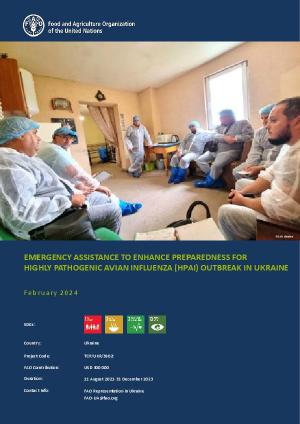
Emergency Assistance to Enhance Preparedness for Highly Pathogenic Avian Influenza (HPAI) Outbreak in Ukraine
11/2024
In late July 2020, both the Russian Federation and Kazakhstan began documenting outbreaks of highly pathogenic avian influenza (HPAI) caused by the H5 virus strain in domestic fowl and wild birds near their shared border. The infection subsequently spread across the region via a number of migratory routes of wild birds, resulting in the identification of H5N8 HPAI cases in Western Europe, East Asia, the Middle East, and Africa by early November 2020.
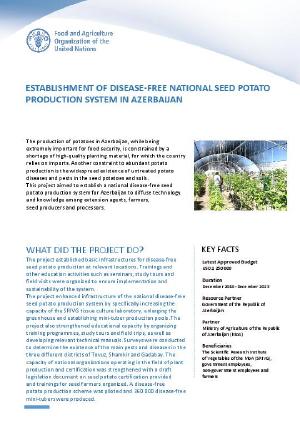
Establishment of Disease-Free National Seed Potato Production System in Azerbaijan - UTF/AZE/011/AZE
09/2024
The production of potatoes in Azerbaijan, while being extremely important for food security, is constrained by a shortage of high-quality planting material, for which the country relies on imports. This project aimed to establish a national disease-free seed potato production system for Azerbaijan to diffuse technology and knowledge among extension agents, farmers, seed producers and processors.
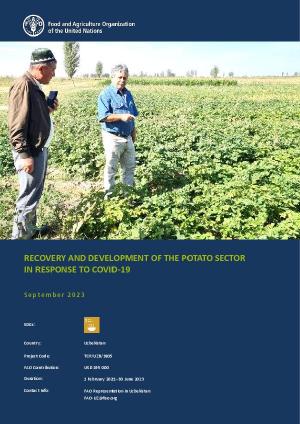
Recovery and Development of the Potato Sector in Response to COVID-19 - TCP/UZB/3805
06/2024
In Uzbekistan, potato is an important crop and a staple in the national diet, with an annual per capita potato consumption of approximately 52.6 kg. From a nutrition perspective, potatoes are low in fat, high in fibre, and rich in antioxidants, nutrients and healthy carbohydrates. They also produce fewer greenhouse gases than other food crops. In addition, potato cultivation represents a source of income and livelihood for many farmers in the country.
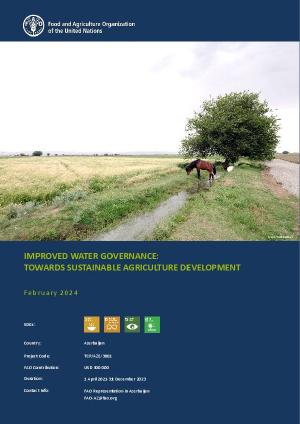
Improved Water Governance: towards Sustainable Agriculture Development - TCP/AZE/3801
07/2024
The impact of climate change, characterized by reduced rainfall, elevated temperatures, declining water flows, and runoff, has led to the emergence of water scarcity as a potential threat in Azerbaijan. Concurrently, increasing demand for water – spurred by population growth, agricultural activities and economic development – exacerbates the situation.
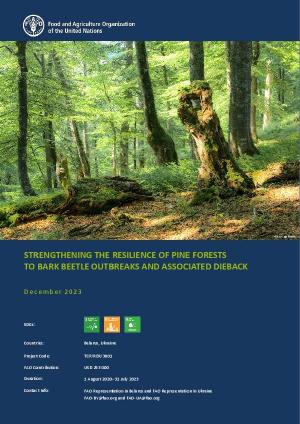
Strengthening the Resilience of Pine Forests to Bark Beetle Outbreaks and Associated Dieback
06/2024
Extensive forest coverage in Belarus and Ukraine provides a fundamental contribution to the wellbeing of rural populations and the national economies, with forestry and the wood processing industry accounting for 2.2 percent of the gross domestic product (GDP) of Belarus and 1 percent of the GDP of Ukraine. Both countries have significant potential for expansion of the forestry sector, which is, however, limited by certain factors related to the global environmental processes, resulting in a...
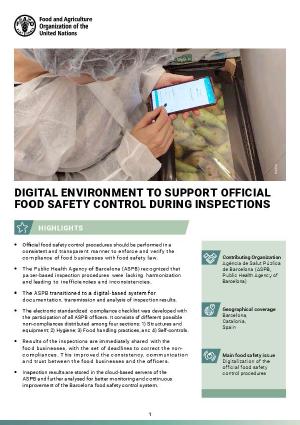
Digital environment to support official food safety control during inspections
01/2024
The paper discusses the transition of the Public Health Agency of Barcelona from paper-based inspection procedures to a digital-based system for food safety control procedures. The digital inspection tool allows for the systematic collection of non-compliances, information about official samples taken for laboratory analysis, and the attachment of pictures to inspection reports.
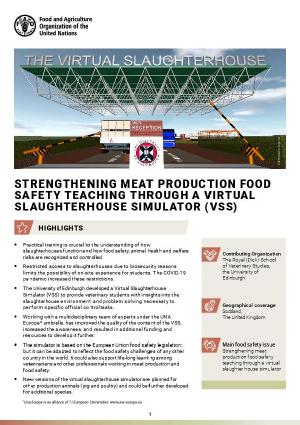
Strengthening meat production food safety teaching through a Virtual Slaughterhouse Simulator (VSS)
01/2024
This document was developed within the framework of the FAO Regional Office for Europe and Central Asia and University of Helsinki collaboration on “Call for collecting good practices in improving food safety management”, launched in June 2022. This call aimed to empower organizations to showcase innovative solutions and good practices to improve specific aspects of food safety management in Europe and Central Asia.
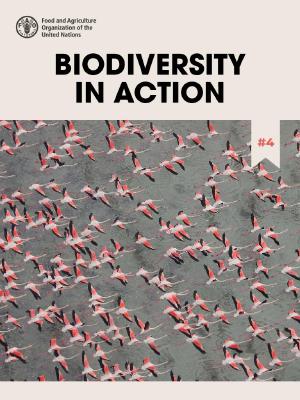
Biodiversity in Action – #4
10/2024
Soil and water are essential for the proper functioning of agricultural ecosystems. As the source of nearly all our calories, soil health is intrinsically linked to food security. This brochure elucidates the connection between soil biodiversity and food security, explores the threats that agrifood systems pose to soil biodiversity, and highlights policy actions undertaken at a global level to address these challenges.
